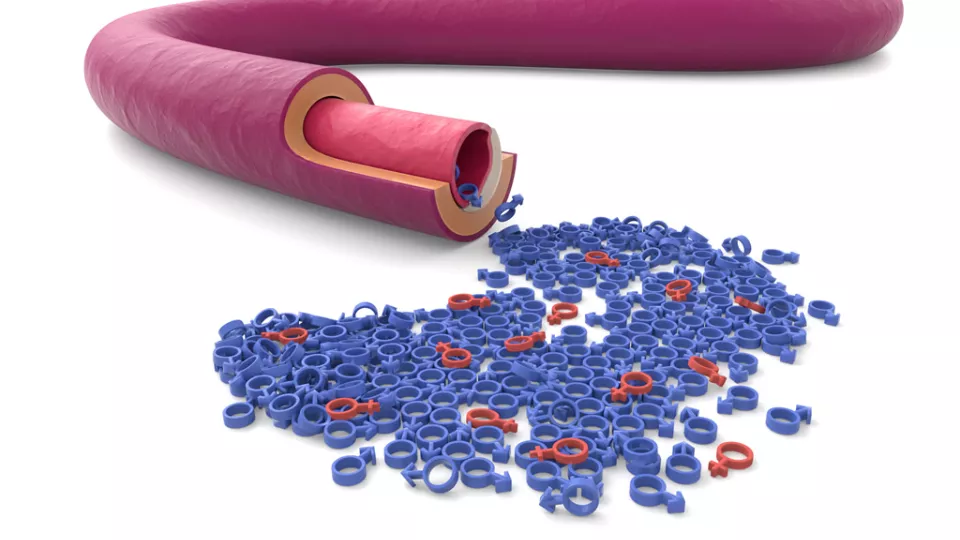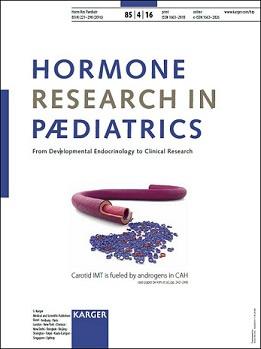
Preventing Cardiovascular Disease Using Hormone Control
Youth with congenital adrenal hyperplasia (CAH) often develop cardiovascular disease risk factors such as obesity and hypertension. Carotid intima-media thickness (CIMT), a marker of cardiovascular risk, is increased in these young adults.
In a new study published in the journal Hormone Research in Pediatrics, researchers at the Congenital Adrenal Hyperplasia (CAH) Comprehensive Care Clinic at Children’s Hospital Los Angeles examined the relationship of CIMT with male sex hormones (called androgens) and obesity in adolescents/young adults with CAH.

“Our study suggests that, in this population of patients, there are associations between androgens and CIMT, linking excess androgen with early signs of atherosclerosis,the hardening and narrowing of the arteries that restricts blood flow,” said Mimi Kim, MD, MSc, co-director of the CAH Clinic at Children’s Hospital Los Angeles and lead author of the study. “This is an important emerging risk factor for cardiovascular disease in the CAH population.”
According to the researchers, given the risk for obesity, hypertension, insulin resistance and vascular dysfunction in CAH youth, along with multiple cardiovascular risk factors in adults with the disorder, further studies need to be done to assess measures of hyperandrogenism and CIMT over time.
“Our results highlight the importance of maintaining good hormonal control, a healthy weight and active lifestyle, and monitoring lipid levels to prevent the development of cardiovascular disease in patients with CAH,” Kim added.
The study is featured on the cover of Hormone Research Pediatrics.
The CHLA Congenital Adrenal Hyperplasia Comprehensive Care Clinic is recognized as the first CAH Center of Excellence by CARES Foundation (Congenital Adrenal Hyperplasia Research, Education and Support) in the Western United States.
Funding for the study was provided in part by the Southern California Clinical and Translational Science Institute (NIH/NCRR/NCATS).


